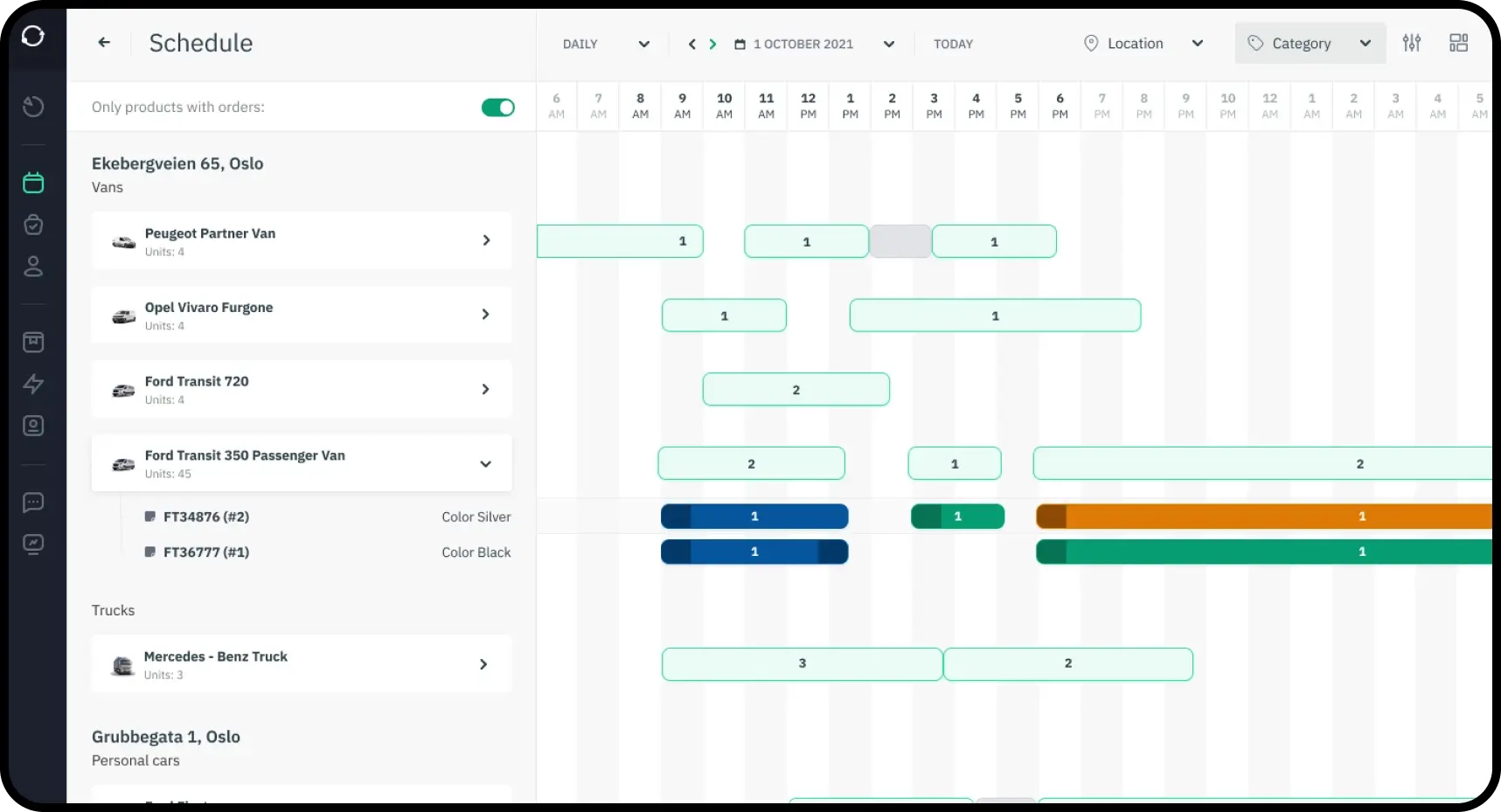

165 Things You Can Rent Out for Extra Income in 2025
Looking to earn extra income? Discover 165 things you can rent out in 2025, from vehicles and tools to fashion and gadgets. Start your rental business today!

The rental industry is broad and dynamic, encompassing tools, vehicles, construction equipment, and recreational gear. As this market grows, entrepreneurs and investors face a pivotal decision: whether to join a franchise or build an independent rental business. Each approach offers its own operational model, market reach, and risk profile.
A franchise provides brand recognition, structured support, and established systems. However, it also comes with ongoing fees and limited flexibility. An independent business, meanwhile, allows full autonomy but demands more initial setup work and strategic planning. For C-level executives and operations managers, understanding these models is crucial before committing resources.
Choosing the right digital infrastructure is also a strategic factor. Platforms like Sharefox Rental Software allow both models to streamline operations with powerful booking, inventory, and self-service solutions. Whether part of a national brand or starting solo, technology underpins performance in both paths.
Franchising often attracts those seeking a turnkey solution. Initial setup typically includes franchise fees, predefined location agreements, and system onboarding. This model simplifies early decisions and can offer faster returns due to immediate brand presence. However, scalability may be hindered by territorial constraints or approval processes dictated by the franchisor.
An independent rental business offers full control over growth strategy, branding, pricing, and market entry. It allows operators to move quickly in niche markets or underserved regions. For example, a business focusing on winter sports rental software can tailor services seasonally without requiring external approval.
However, such freedom comes at the cost of building infrastructure from scratch. This includes logistics, customer acquisition, and digital storefronts. Sharefox supports such efforts with tools like online rental store systems and inventory rental management, enabling lean startups to scale without franchisor dependencies.
Franchisees benefit from established demand generation. Marketing campaigns are centrally managed, and there’s often a pipeline of customers familiar with the brand. However, franchisees typically pay royalties or percentage-based fees from revenue. This impacts margins, especially in competitive markets with seasonal variability.
Independents can define revenue models without such constraints. They can introduce subscription models, adopt dynamic pricing, or experiment with equipment categories. For example, a company using subscription rental software can offer long-term rental bundles—an option not always permitted under franchising contracts.
Franchises may restrict the types of equipment or services that can be offered. Meanwhile, independents can quickly pivot toward emerging trends—whether that’s eBike rentals or combining logistics with digital booking tools. This flexibility allows early adopters to capture new demand faster.
Franchisors usually require the use of their proprietary systems. This ensures brand consistency but can lead to limitations. Franchisees might find themselves constrained by outdated booking tools or lack of integration with newer logistics APIs. In contrast, independent businesses can choose best-in-class solutions based on their specific needs.
Solutions like Sharefox’s rental system offer integrated booking calendars, payment gateways, and customer interfaces tailored to both small startups and enterprise operations. Access to scalable and customizable technology levels the playing field for independents, especially in sectors such as tool rentals or party supplies.

Franchises offer instant brand recognition. This appeals to customers who value consistency and established service standards. In competitive rental categories like vehicle rentals, brand trust can accelerate early customer acquisition and help retain repeat clients across regions.
However, brand equity is a double-edged sword. Franchisees may be negatively impacted by corporate decisions or brand crises beyond their control. Market penetration is also tied to franchisor rules, potentially blocking expansion into adjacent sectors like motorhome rental or golf cart rentals if not aligned with the brand’s direction.
Independent businesses must build their identity from scratch. While more challenging, this allows for local brand positioning and direct customer engagement. Operators can emphasize community involvement or specialized inventory, backed by Sharefox’s website booking system to manage digital visibility and conversion.
Independent businesses enjoy the agility to test new services. They can pivot from tool hire to outdoor gear rentals or expand into experiences, depending on customer demand and seasonal shifts. They can also experiment with automated checkouts using self-service rental software, which is often harder under franchise protocols.
Franchisees are typically restricted to a set list of approved services. While this ensures standardization, it can slow innovation or adaptation. For instance, an independent business using Sharefox could instantly launch a photo booth rental line or bundle services for events. Franchisees would require approval and face compliance checks before rollout.
This flexibility also extends to operations. With Sharefox’s online booking system, independents can deploy unique pricing models or integrate with local delivery partners, bypassing rigid franchise logistics.
Franchise agreements typically contain legal and operational obligations. These contracts govern everything from pricing to branding, and even dispute resolution. They can offer legal protection but reduce responsiveness. In some jurisdictions, dissolving or exiting a franchise relationship can be legally complex.
Independents manage their own regulatory compliance and local licensing. This adds complexity but gives full control over terms and processes. If the business operates in a niche sector like wedding rental or railroad car rentals, legal flexibility becomes an advantage, allowing direct alignment with local requirements without external approval.
Digital recordkeeping and automation through Sharefox support these functions. Features like digital signatures, integrated invoicing, and user authentication reduce legal friction for independents without needing franchise back-office systems.
One of the core trade-offs between franchising and independence lies in profit structure. Franchisees benefit from shared marketing and support, but must give up a portion of revenue in royalties, ad fund contributions, and supply chain markups.
Independent businesses keep all profits but carry the full weight of marketing, technology, and operations. Sharefox mitigates these burdens with tools like rental booking software, enabling efficient management of orders, payments, and scheduling without the need for a large administrative team.

Profit margins in franchising can also be squeezed by fixed fees regardless of performance. In contrast, independents can scale cost-effectively by targeting profitable verticals like HVAC equipment rentals or launching high-demand products using Sharefox’s booking calendar to manage fluctuations.